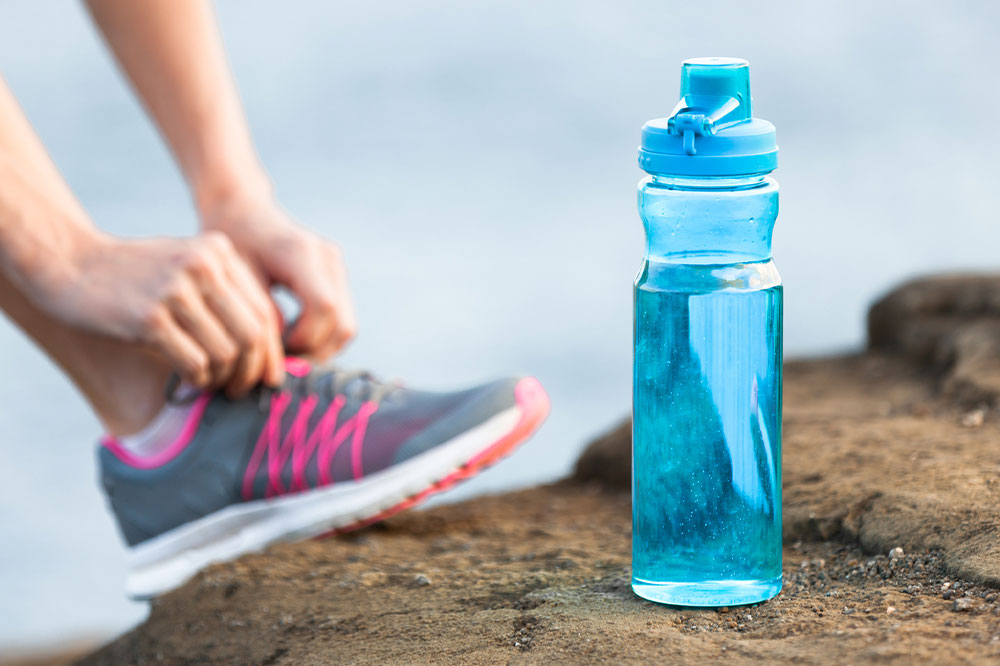
10 things to consider while buying a water bottle
Choosing the right water bottle is important for your health and well-being. Choosing a durable and insulated bottle may be ideal if you’re buying a water bottle for hiking or outdoor activities. Similarly, if you need a water bottle for work or school, you can go for a lightweight and easy-to-carry bottle. Here are ten things to consider to make an informed decision and choose a water bottle that suits your needs.
Material
Water bottles are made of materials like glass, plastic, aluminum, or copper. Glass bottles are the safest as they are non-toxic and don’t contain harmful chemicals. However, they are heavier and can break easily. Although strong and lightweight plastic bottles tend to leak chemicals into the water, especially when exposed to heat. Aluminum bottles are lightweight and durable but can also leach chemicals into the water. Copper bottles are a good option as they are antimicrobial but heavy and can tarnish easily. So, you can consider the bottle’s material, preference, and usage before buying one.
Design
Design can actually play a major role in one’s daily life. For example, a bottle with a wide mouth can be easier to clean and fill up. A bottle with a handle or strap can be more convenient for carrying. Additionally, a bottle with a unique or eye-catching design can make drinking water more enjoyable and motivate you to stay hydrated throughout the day.
Bottle weight
Lighter materials, such as plastic or aluminum, may not be as durable as heavier materials, such as stainless steel or glass. So, it’s important to consider one’s usage and prioritize the weight accordingly. Plastic bottles are typically the lightest, making them an excellent choice for on-the-go use while traveling, hiking, or working out. Aluminum bottles weigh slightly more but can be relatively lightweight and durable. Glass bottles tend to be the heaviest, weighing around 14-20 ounces for a 500ml one. Glass is a non-reactive material that does not leach chemicals into your drink, but it can be more challenging to carry around. Stainless steel bottles are usually heavier, but they may be insulated, making them suitable for outdoor activities.
Portability
Look for a bottle that is easy to carry, with a comfortable grip or a strap that can be attached to a backpack or bag. Some bottles are designed with handles that make them easier to carry. Some have a compact shape that fits easily into a purse or backpack. A portable bottle can ensure that one always has water at hand when one needs it.
Size
Consider the amount of water you typically drink in a day and choose a bottle size accordingly. A smaller bottle can be more convenient for short trips or for carrying around during the day, while a larger bottle may be more suitable for long journeys or intense physical activity. In addition, you can check if the bottle is compatible with both hot and cold drinks. Some bottles are insulated and can keep drinks hot or cold for longer periods, while plastic or glass ones may not be suitable for hot beverages.
Environmental impact
The environmental impact of bottles is an important consideration. For example, plastic bottles take hundreds of years to decompose and release harmful chemicals into the environment in the process. Additionally, only a small percentage of plastic bottles are recycled, with the majority ending up in landfills or oceans. By choosing a reusable water bottle, one can reduce your carbon footprint and help mitigate the environmental impact of single-use plastic. Using a reusable water bottle can also save one money in the long run by reducing the need to constantly purchase bottled water.
Insulation
Insulated water bottles are a great investment because they can keep the water cold for hours. This is especially important in hot weather or when engaging in physical activity.
Durability
You can look for a water bottle that is durable and can withstand rough handling. A durable bottle can last for years and save money in the long run.
Brand
Reputable brands ensure quality and are more likely to prioritize sustainability and ethical practices in their manufacturing processes. When choosing a brand, look for certifications such as BPA-free, recyclable, or eco-friendly.
Price
Water bottles are available at different price points. While it is important to choose a bottle that fits your budget, it is advisable to not compromise on quality.
Each person may need a different type of bottle for different purposes. But choosing the right water bottle is essential for maintaining proper hydration and minimizing environmental impact.


